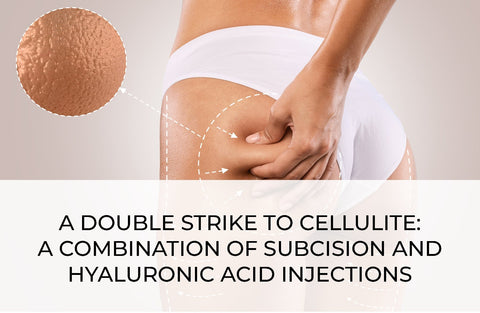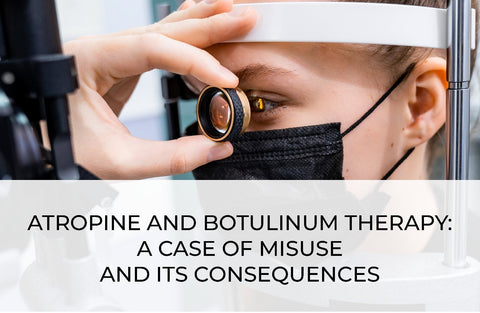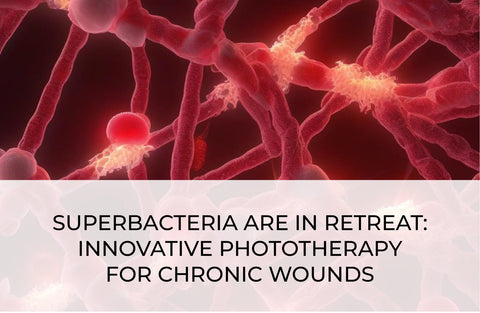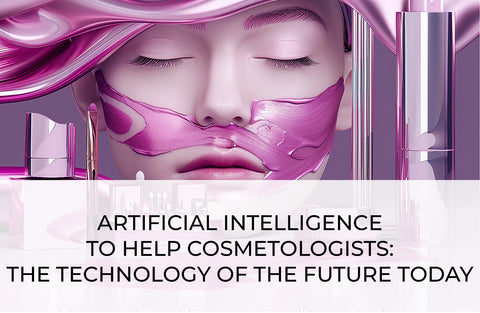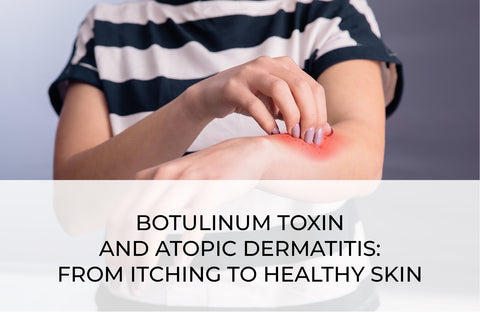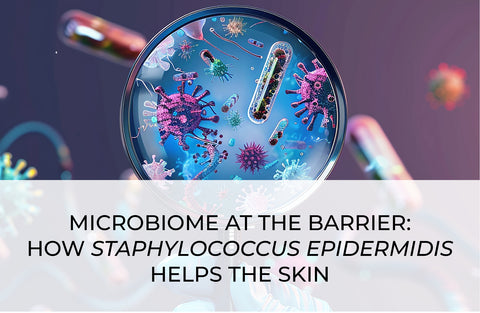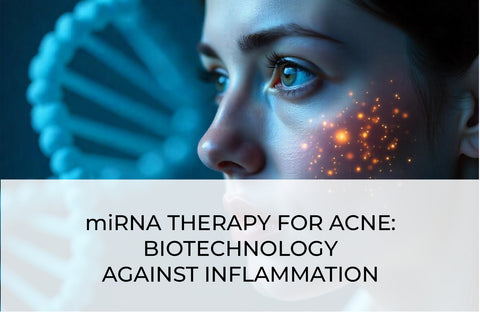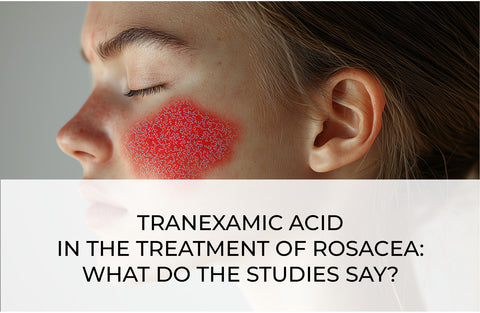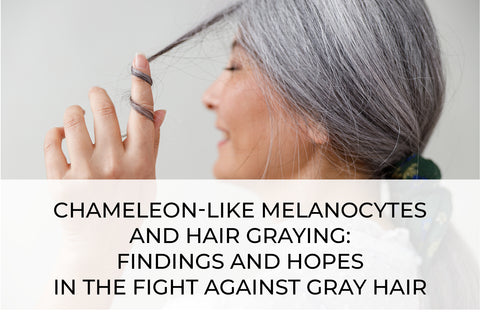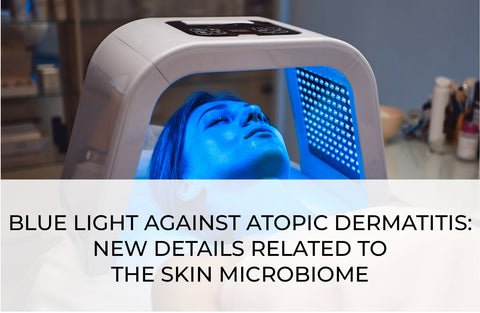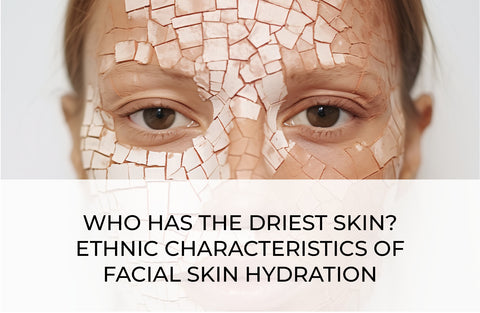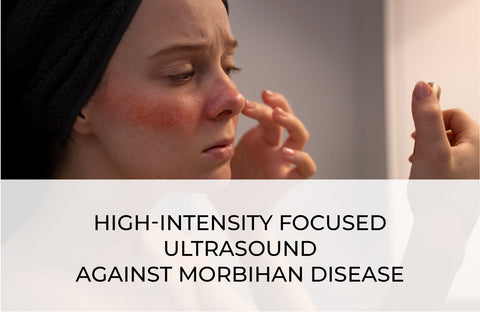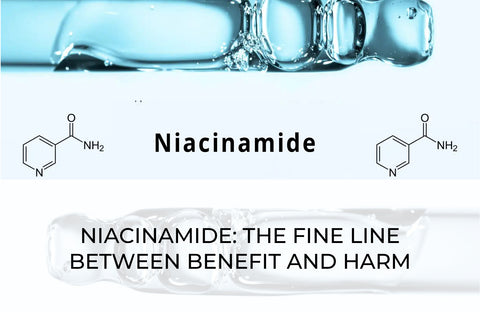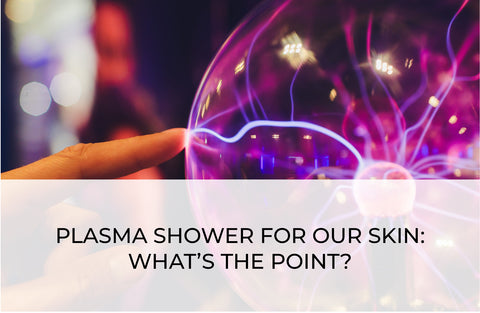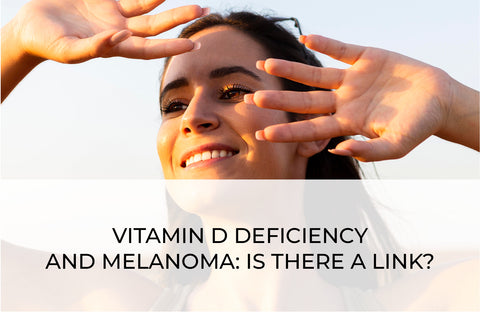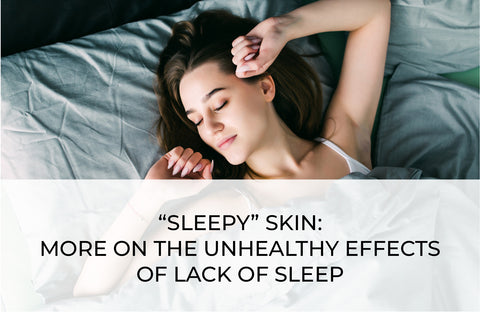"SLEEPY" SKIN: MORE ON THE UNHEALTHY EFFECTS OF LACK OF SLEEP

According to several studies, lack of sleep or poor sleep quality is associated with significant structural and functional changes in the skin, mainly duplicating the skin reaction to psychological stress. It happens due to the involvement of the same signaling systems: hypothalamic-pituitary-adrenal and sympathetic adrenomedullary pathways. Their activation leads to unfavorable consequences for skin homeostasis:
- skin immunity dysfunction,
- disruption of epidermal lipid synthesis and weakening of the epidermal barrier,
- transepidermal water loss increase, dry skin,
- decreased activity of antimicrobial peptide synthesis, increasing the risk of skin infections,
- impaired skin regeneration,
- increase sebum secretion, which contributes to increased skin oiliness and acne aggravation under stress,
- pro-inflammatory cytokines overexpression can cause worsening chronic inflammatory dermatoses such as rosacea, atopic dermatitis, and psoriasis.
Min A.K. et al. evaluated the effect of sleep deprivation on the main biophysical parameters of the skin [1]. Twenty-four healthy women aged 25–35 years participated in the study. The participants were awake for 24 hours under laboratory conditions (temperature 24 °C and relative humidity 40%). The skin condition of each participant was assessed after normal sleep (baseline) and after 24 hours awake. Measurements were taken at the same time each day in the morning. After one night of sleep deprivation, numerous changes in skin biophysical parameters were recorded compared to baseline measurements:
- significant reduction in skin hydration and impaired barrier function,
- decreased elasticity, increased skin scaling,
- the pores on my face became more visible,
- decreased skin brightness in the cheek area,
- markedly reduced skin blood flow in the infraorbital region.
However, it's not just long-term sleep deprivation but also less severe disruptions that negatively affect skin health.
Jang S. et al. investigated the effect of late bedtime due to smartphone use on skin conditions. Twenty-two women aged 20–39 years participated in the study. The participants used smartphones for 2 hours before going to bed. This resulted in significant disturbances in sleep quality — the average time of sleep onset shifted to 2 a.m., and the quality of sleep deteriorated, inevitably affecting the skin condition. The participants showed increased sebum production, deterioration of skin texture and elasticity, and increased levels of cortisol and pro-inflammatory cytokines, which inhibit the synthesis of collagen fibers and increase their destruction due to the activation of matrix metalloproteinases [2].
Shao L. et al. found significant changes in the skin microbiome in patients with deficient or impaired sleep quality:
- reduction in the species diversity of the microbiome,
- increased population of Pseudomonas strains,
- reduction of Streptococcus, Stenotrophomonas, Acinetobacter, Haemophilus, Actinomyces, and Neisseria strains [3].
It is difficult to determine the exact causal relationship between the weakening of the epidermal barrier, decreased skin hydration, increased sebum production, and microbiome alteration characteristic of sleep-disordered patients. Whether the microbiome or the microhabitat is the primary cause has not yet been determined. However, the critical fact is that sleep disturbance leads to qualitative and quantitative changes in the microbiome, which will undoubtedly affect the skin's health.
Researchers on the health effects of sleep deprivation are unanimous in their conclusions: ensuring the required duration and quality of sleep is essential. It is one of the fundamental factors for good health, mental clarity, and good looks!
References
- Min A.K., Kim E.J., Kang B.Y., Lee H.K. The effects of sleep deprivation on the biophysical properties of facial skin. J Cosmet Dermatol Sci Appl 2017; 7(1): 34–47.
- Jang S.I., Jung Y., Lee M., et al. Evaluation of changes in skin characteristics due to the poor quality of sleep caused by smartphone usage. J Cosmet Dermatol 2022; 21(4): 1656–1665.
- Shao L., Jiang S., Li Y., et al. Regular Late Bedtime Significantly Affects the Skin Physiological Characteristics and Skin Bacterial Microbiome. Clin Cosmet Invest Dermatol 2022; 15: 1051–1063.
















